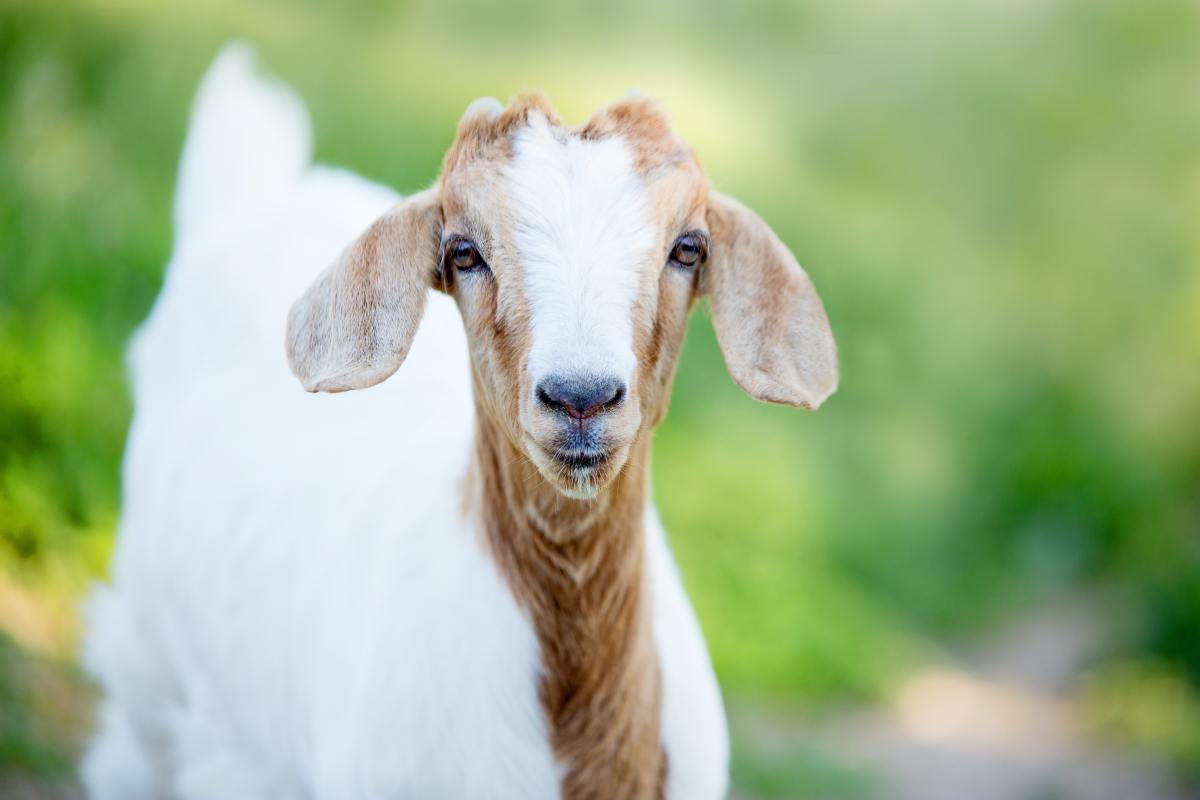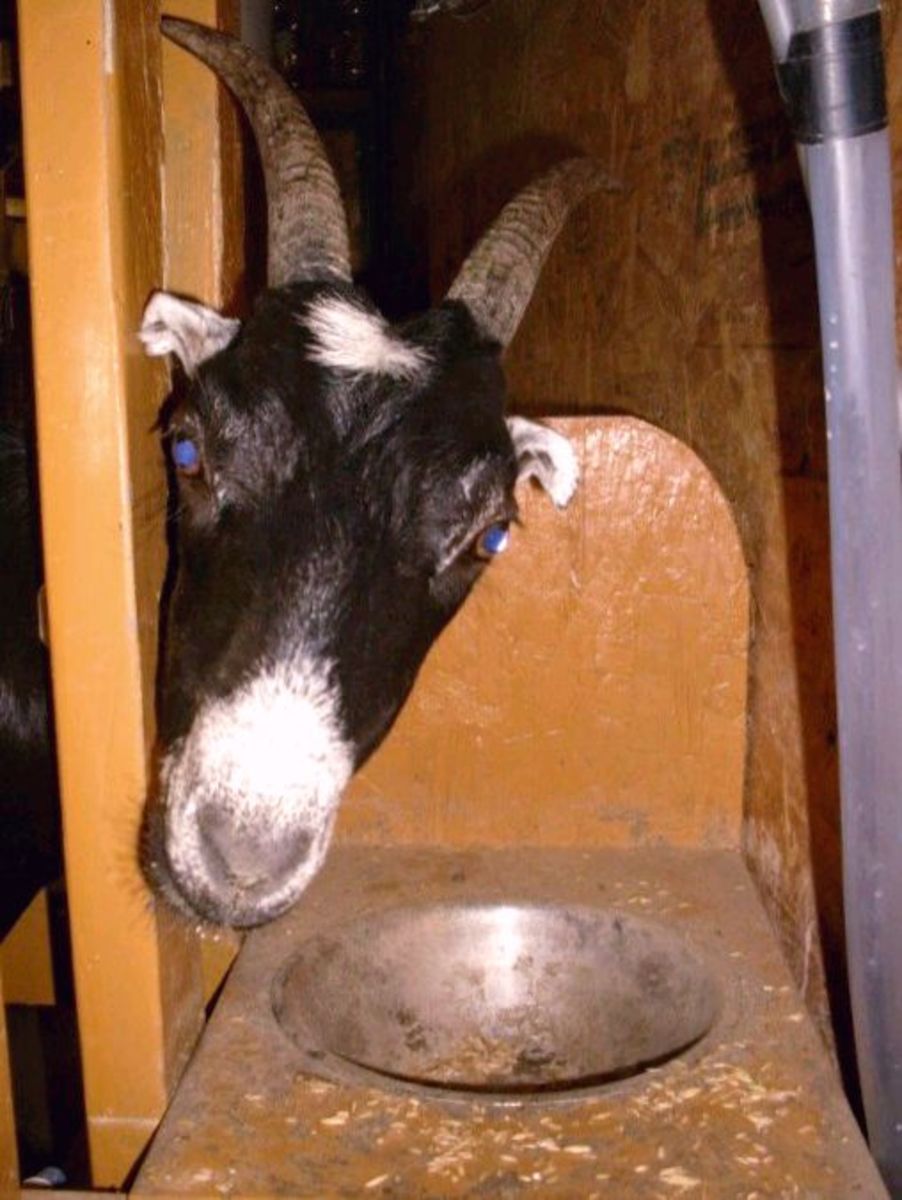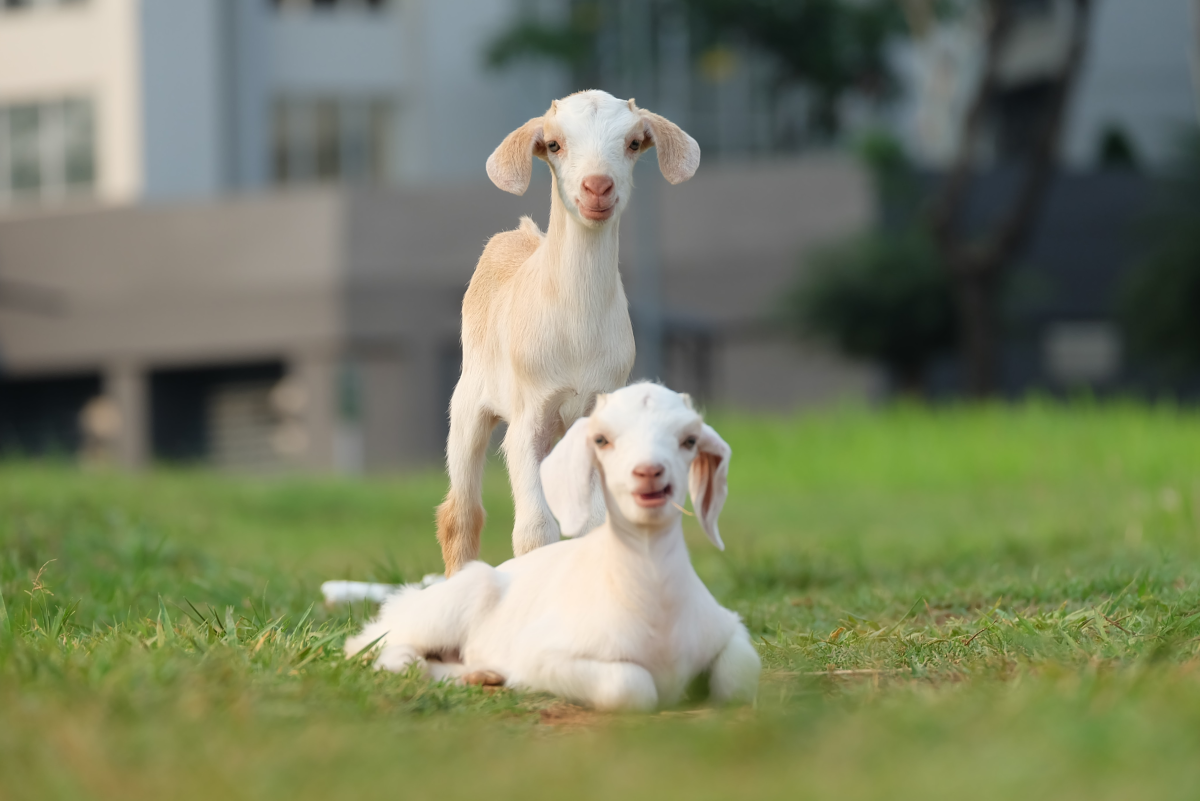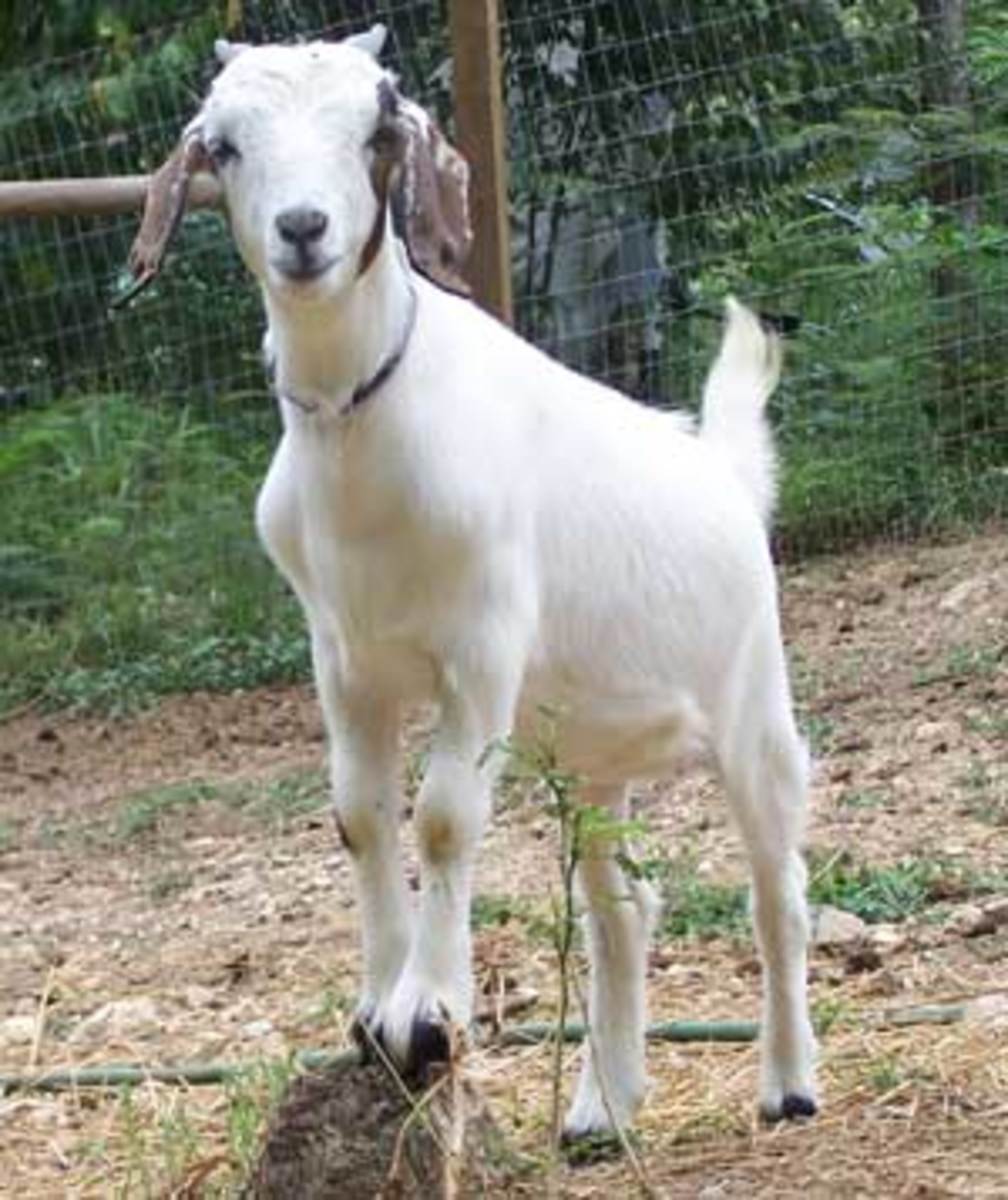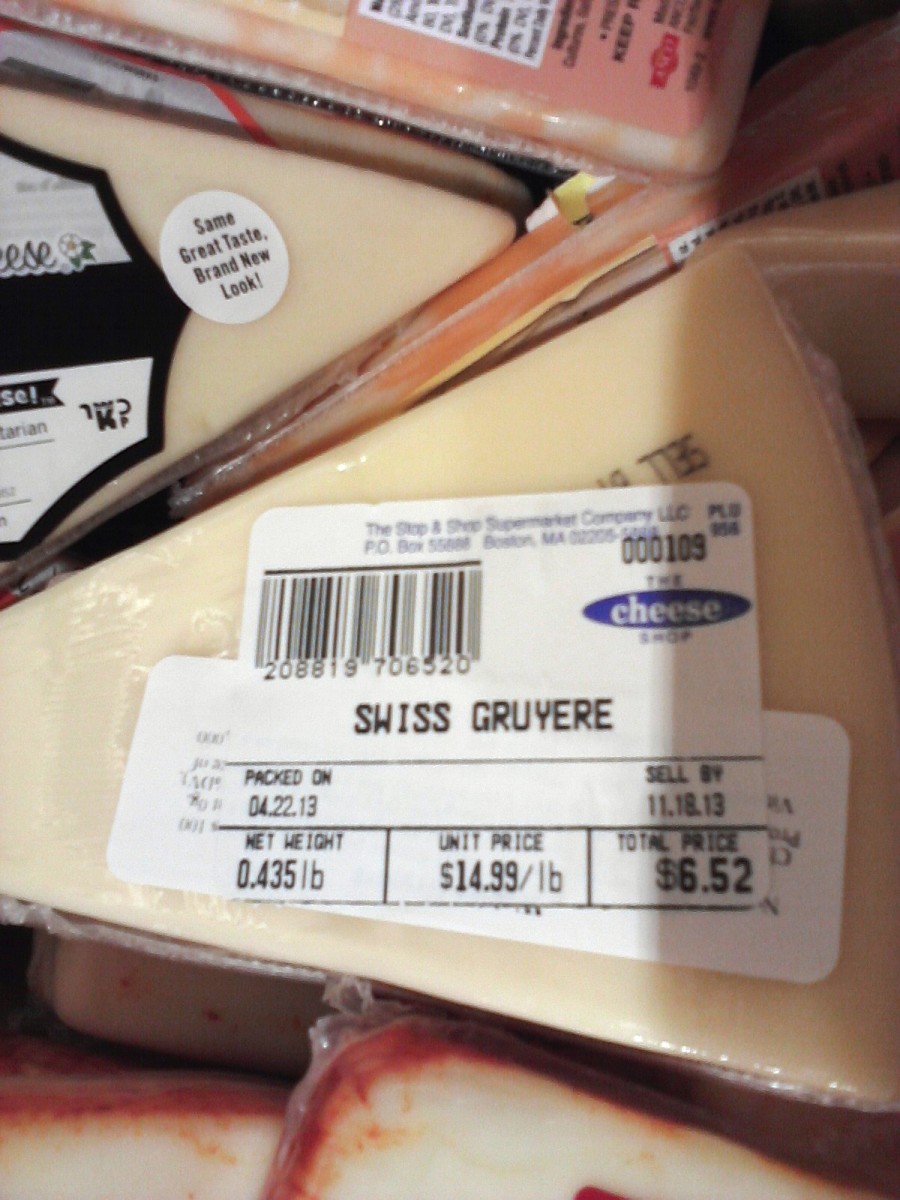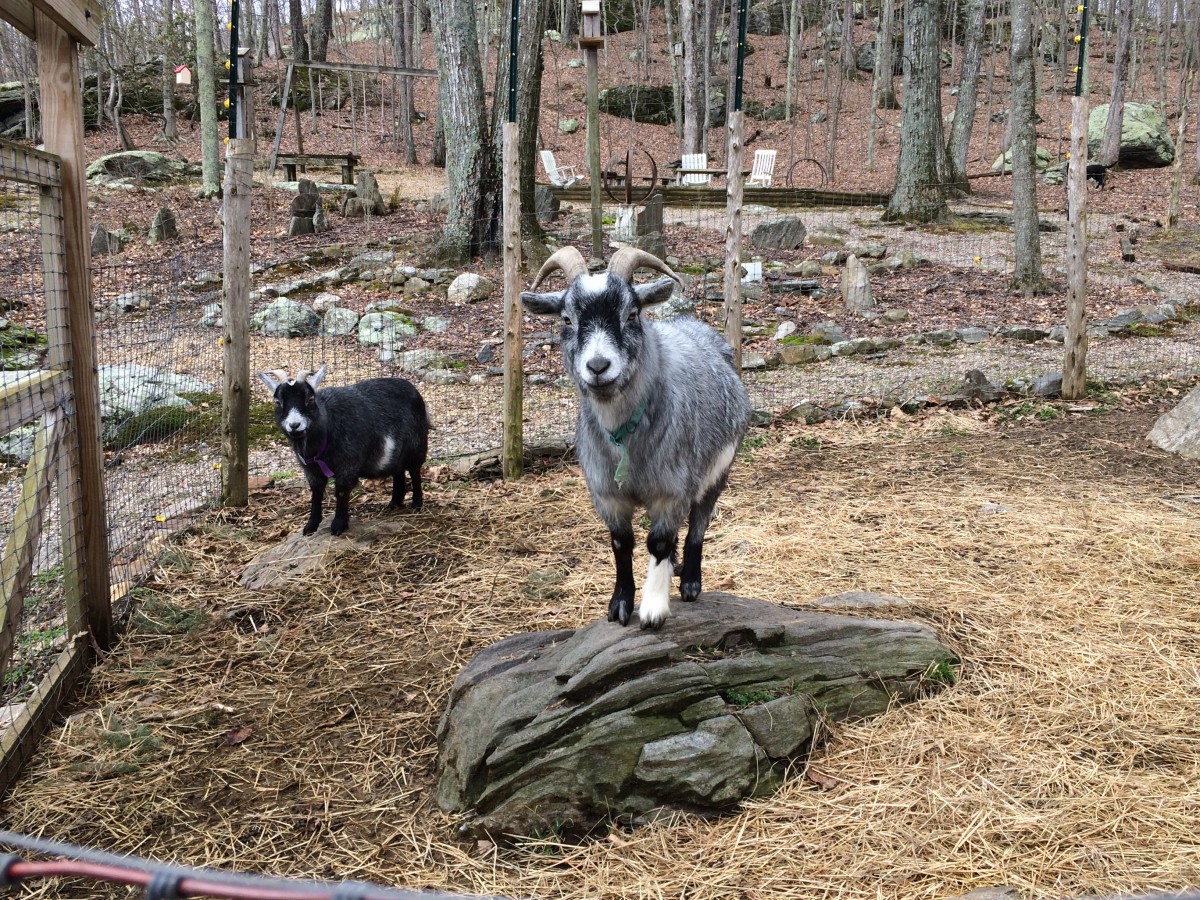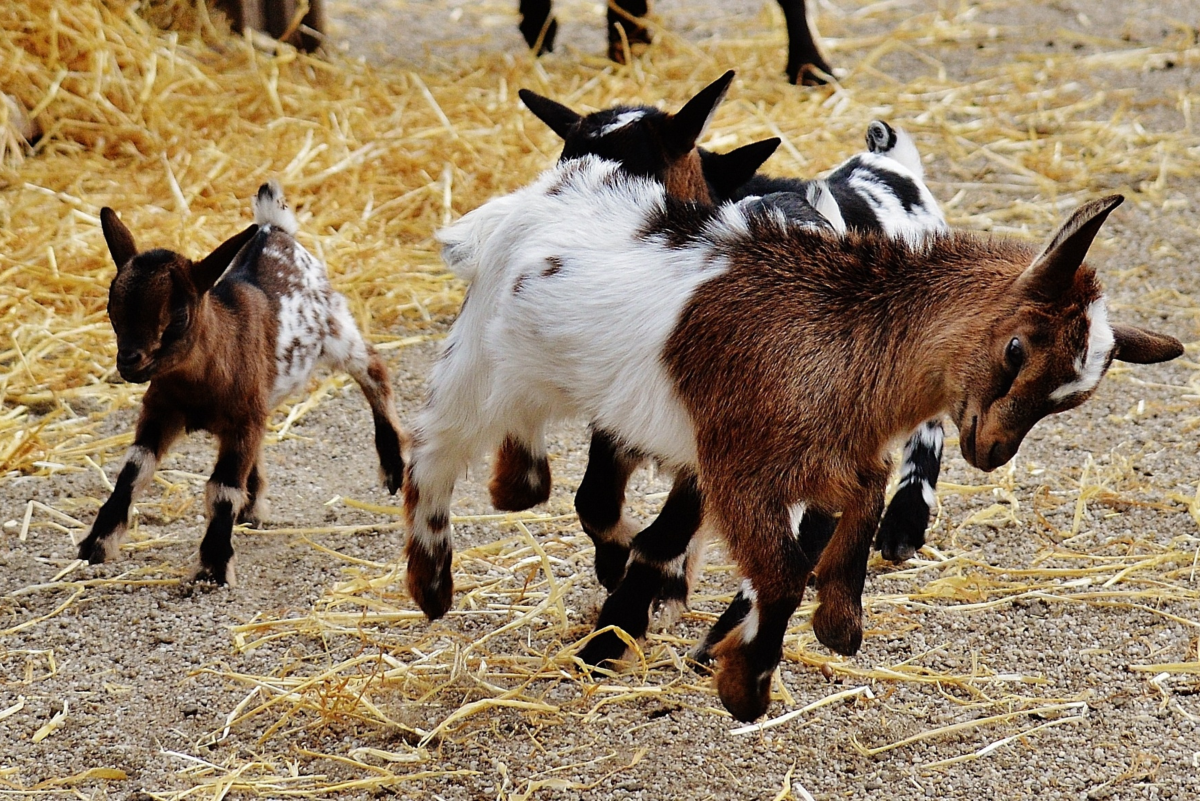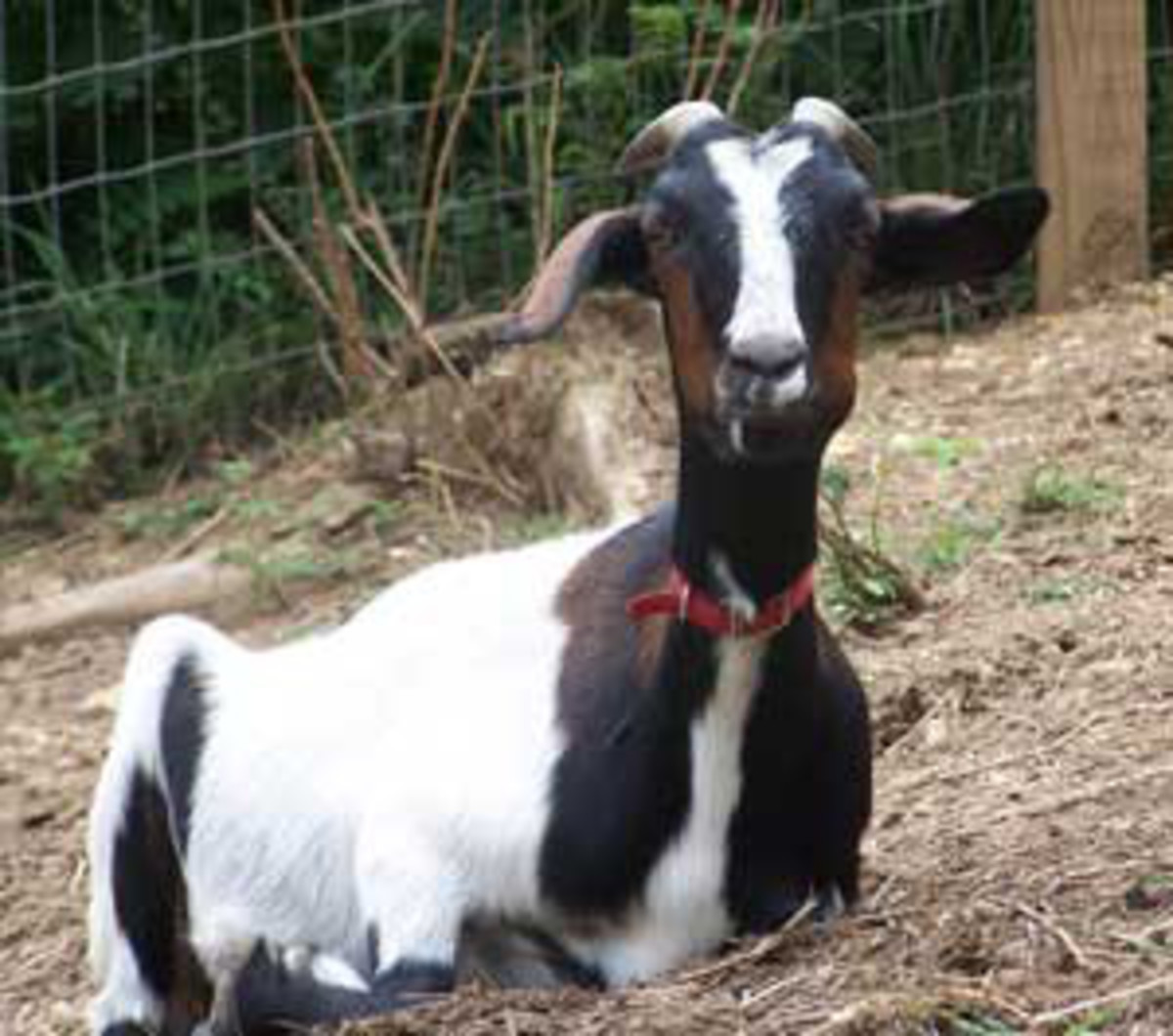Morgana the Nubian Dairy Goat, Who Gave Me Cheeses and so Much More: Photos and Essay
Morgana in 2007
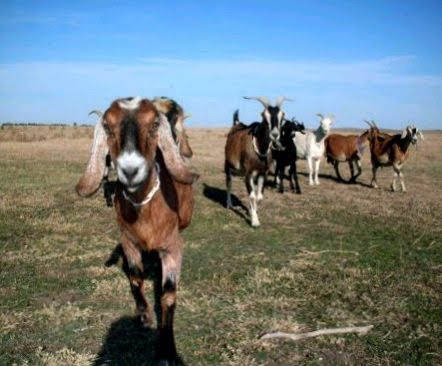
Death of a Beloved Dairy Goat
December 26th, 2009
I'm not much for talking about death. It is a fact that happens regularly, and doesn't bear much discussion of a frivolous nature, especially when you live on a working farm where death and birth are both everyday occurrences. But every now and then, a special death happens which is truly the closing paragraph to a chapter you can no longer edit.
Such was the death of my first dairy goat, Morgana.
She passed away early this morning.
Why Talk About It
I have made a commitment to share with you my fascination with cheese making, and tangentially, my love of dairy goats. What better way to do that than to tell you something of my first goat, Morgana, who is largely responsible for my own cheese making journey, and so much more.
Morgana During the Winter of 2008
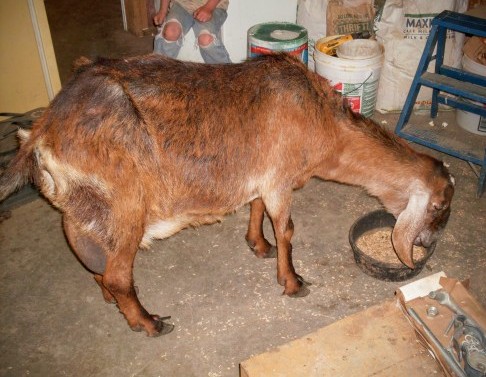
Old Age--September 2007
Morgie hadn't been feeling well for some while. After all, she was 8 years old, and had had more than 25 children (not that anyone was counting). She had loved them all, and cared for them well. But motherhood and our harsh, long winters had finally worn her out.
Now she couldn't keep on weight, and her ribs were prominent under rough, curly hair. Even extra grain rations failed to keep her fit, though they cheered her spirit.
We didn't expect her to last long. But she surprised us.
Milking Time
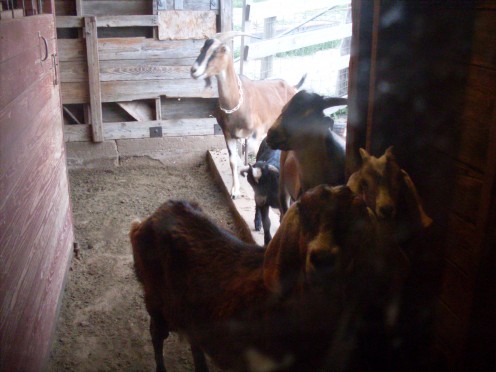
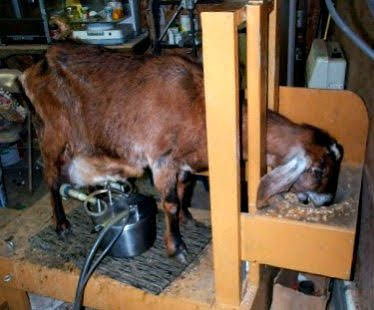
Miracle Babies
That winter, she birthed twins. She had always been prolific, bearing three or four kids per year, but no one expected her to conceive in her condition, let alone birth more healthy, beautiful little goats. So these two seemed like a miracle.
She had beat out Old Man Winter and defied the odds. She obviously didn't know that she wasn't supposed to have more children, or that she was too old to make it through another winter. She raised these two children, then went on to try to raise others when their own mammas wouldn't or couldn't care for them . . . sometimes plowing through belly-deep snow to get to them where they nestled in a warm stall.
She had always been incredibly compassionate to those smaller than her.
Who Was Morgana?
Morgan LaFaye, sometimes called Queen Morgana, was a tempestuous, wicked, occasionally charming fairy queen in the Arthurian Legends. According to T.H. White, she was indirectly responsible for King Arthur's growth of courage as a child, leading eventually to his rise to the throne.
Queen Morgie
My father had gotten to calling her "Queen Morgie". She had precise ideas on how the world should run, and let her wishes be known at every turn.
At milking time, she made pertinent attempts to barge into the milking room first, regardless whether she even got milked. She had no horns (she'd been debudded as a kid), but this didn't stop her from plowing her inferiors . . . er, subjects . . . er, fellow goats--up against a wall if they didn't move aside at a nudge.
She never left the milk room quietly, until she had had as much grain as she could sneak, finagle, or steal. Sometimes, only a forceful removal was possible. (Ever tried pushing a stubborn goat through a narrow opening? It's not easy.) After these removals, she'd plant herself outside the milk room door, sometimes jumping on it to look through the window, and await her opportunity to plow back in.
After writing all this, I feel I must defend her by saying that her affectionate nature made up for every hint of this terrible egotism.
You can perhaps guess that the giving part of her nature was also stubborn. She was as kind to human children as she was to her own, and was never stand-offish to anyone . . . unlike some of her herdmates.
Some of Morgie's Children and Foster Children--Cross-Bred Dairy Goats
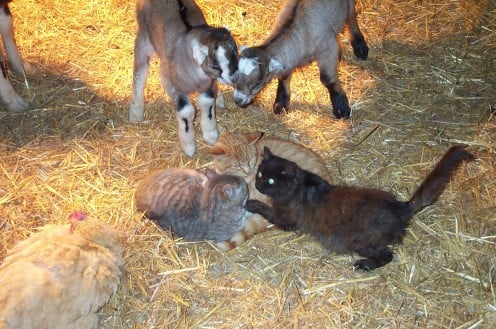
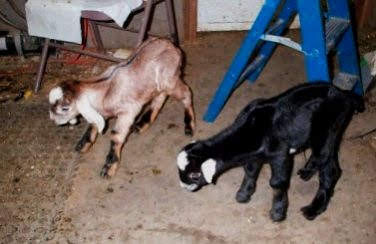
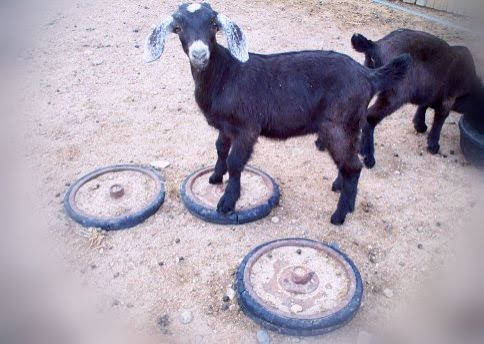
My Start in Goats
Morgana was born in January 2000.
She was among the first lot of goats to ever be conceived on my parents' farm. My father had bought two Nubian does (nannies) from a neighbor the year before, and these experienced mothers each had two kids.
These first does' names were Jingles and Escape--aka, "Essie". They were both mature, older does who were decent milkers, but were not show ring quality. They brought us three or more batches of kids each before going the way of all flesh.
At the time of Morgana's birth, I was 17 years old, and new to goats. I didn't know about all the different breeds, and didn't know that Jingles and Essie were not very good specimens physically. This didn't matter to me, because their offspring were plainly adorable. It never occurred to me to get pictures of Morgana as a baby, nor of her brothers and sisters, so you will have to take on good faith what I say about her charms. Morgie has had some babies who were equally adorable, and just as loud.
Morgana's Relatives
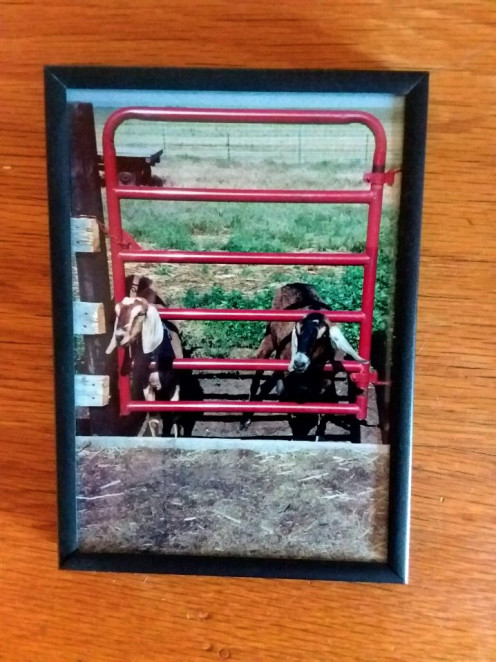
Loud and Demanding, Not Unlike Her Namesake
That's the thing I remember most about Morgana's childhood--she had a bleat unlike any other. Even before she had figured out how to walk without sprawling every few steps, she was opinionated. She screamed if she wasn't held securely; she screamed if she wasn't fed her bottle exactly on time; she screamed if she wasn't treated with absolute respect and attention in every detail.
Yet, she was kind, even in her sprawling, infant state. She was a cuddler, and while tiny, remained one of my playthings. I may have been too big for stuffed animals, but she was the next best thing. She even came into the house . . . a miracle, given that my mother is a meticulous housekeeper.
Siblings and Choices
Morgana had one brother, and two half-siblings. Her brother's name was Lancelot. Her half-siblings were Guinevere and Arthur. Guinevere was sold, but Lance remained. (Arthur died in a fall off the roof of one of the goat sheds, bursting an over-full tummy.)
Being a buck, Lance's name quickly deteriorated to "Mr. Stinky".
I had thought initially that Guinevere would be my special goat, and I had begun teaching her to lead and to be a regular pet. But she had been born with a pair of extra teats which required surgical removal. We definitely did not want to risk increasing this genetic anomaly in the herd, and sold her. Morgana was chosen as the better milker and breeder.
Brother Lance, Sister Morgie--2007
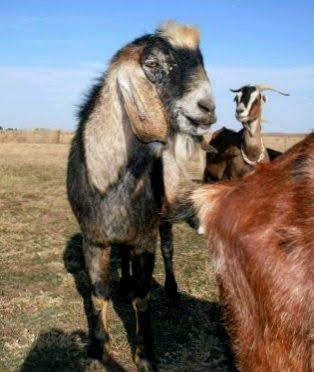
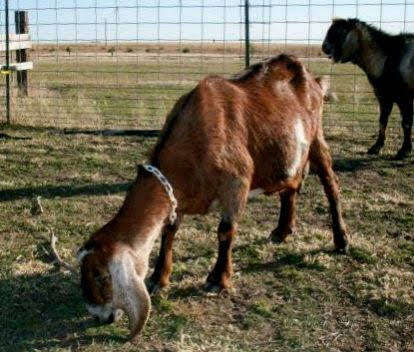
A Goat in Town
When Morgana was a yearling, I got married and moved to a nearby town, population fewer than 400. The following year, Morgana came to live with me.
She brought along her tiny daughter Heidi, and lived in a stock-panel pen in my side yard. They shared a converted storage shed when the weather was wet.
Cry Baby
That first night, she cried so hard, trying to figure out why her life had changed, that our old neighbor mistook her for a desperately screaming child, and came over to find out "why no one was taking care of that baby"! In the next week, Morgana settled in and began to enjoy town life.
Admirers
She adored the neighborhood children, who came in flocks to pet her, feed her, cuddle Heidi, and ask questions. I spent much time outdoors, making sure they understood not to feed her potato chips, and that they didn't strip every bush in my yard bare in their zeal to provide her with treats.
Each morning and evening, I took my year-old son on my arm and went to milk her. Sometimes I had an audience of six or seven children, who all had to have a turn at trying to milk. I sometimes shared the warm milk with them, and in thanks, they tried to slip Morgie extra handfuls of grain.
Betrayed
Within a year, Morgana's sojourn with me came to an end. It wasn't because of her noise. She had settled down remarkably well from those first days. It wasn't because she often got out, and went traipsing down the street, looking for someone to whom she might say hello. No, no one minded her walks, or her frequent escapes. In fact once, an elderly man who was already on a walk grinned, threw his arms around her, and said, "Oh, she just wants to go for a walk, too." No one was afraid she would demolish their flowers or use their cars as a trampoline. She always was a lady. She even left hanging laundry alone, and I never lost buttons or shirt tails to her appetite.
The blow came when another citizen, who was unable to drink cow's milk, went to the town council asking if he, too, might have a goat. They told him no, and when he pointed out that we already had one, they sent us a letter saying Morgana must leave.
The day came, and my father came to pick her up. She and Heidi rode in his van back to the farm, where she was content, and once again ruled as Queen Morgie.
But I missed her.
My Goat Pen Still Stands
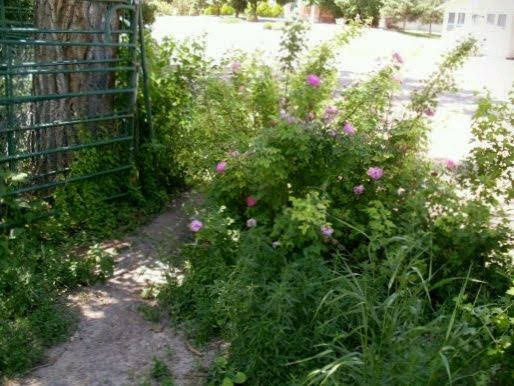
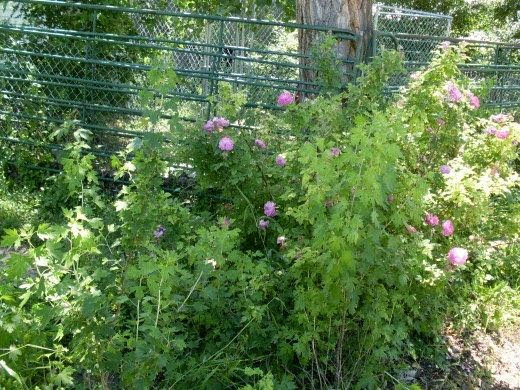

Too Many Goats=Cheese Making!
Thus she remained for almost the next 7 years. During those years, my father gained notoriety by regularly expanding his goat herd. He had not the fortitude to part with his many pets.
Out of necessity more than desire, he developed an interest in cheese making. I soon took over, and found it was a wonderful hobby. So many varieties and methods and philosophies and uses! The possibilities were positively boggling!
Over the years, I experimented with making almost as many kinds of cheese as I could manage without special conditions or inoculations. My family feasted on goat cheeses, and they became a part of our daily life. Throughout this process, I learned more about genetics, nutrition, feeding habits and methods, and even genetically modified grains than I ever would have otherwise. I learned that when a cheese doesn't turn out as I wished, it's still great for some unlooked for recipe or use, and that the art of turning "losses" into gains needn't be that hard. A great life lesson.
Finally, I was partially prepared through the process of goat keeping and cheese making to enter a homesteading lifestyle, which my husband and I did in 2010. I have never regretted having Morgana in my life. Her many gifts have been priceless.
Morgie, thank you, and here's to you, girl. May your pastures always be green and your feed pan always be full. It's the least you deserve.
Morgana's First and Last Home
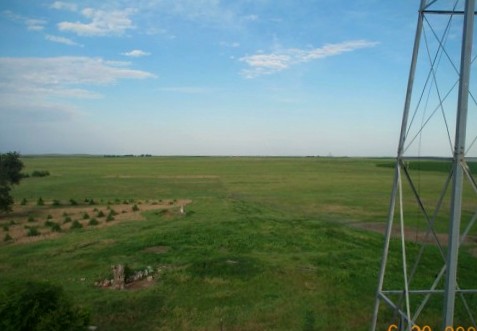
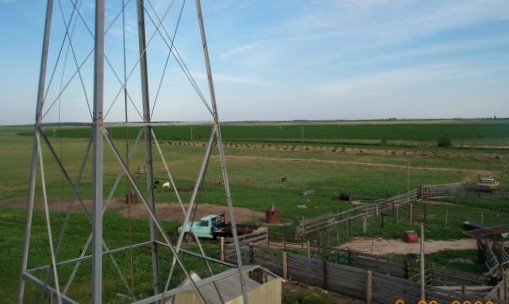
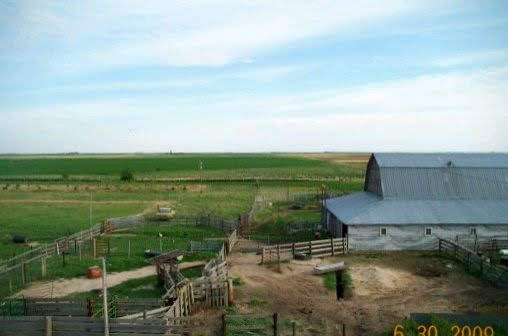
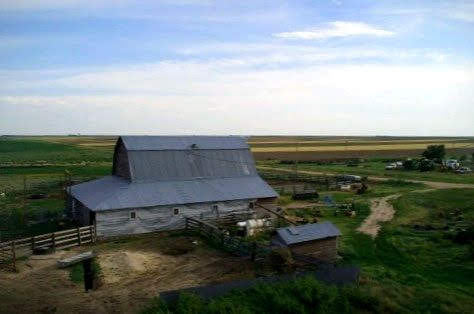
Sleep Now for a Bit, Dear Girl
Beloved Queen Morgana
January 2000 to December 2009
R.I.P.
Are You a Good Match for a Pet Goat?
Goat People
Do you have one or more goats?
© 2009 Joilene Rasmussen

